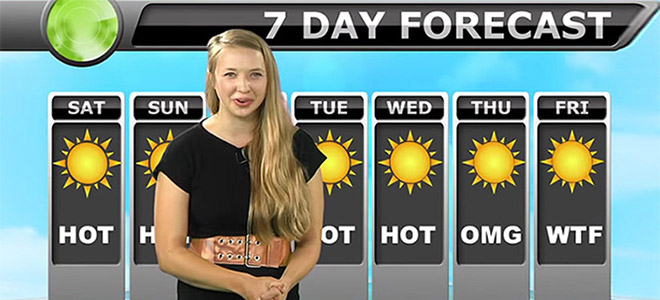ClimateWire
March 22, 2017
by John Fialka
We have rising sea levels, world-record warming, acidifying oceans, an approaching food crisis and a president who is determined to cut any federal budget that is aimed at mitigating climate change. Is there anything that’s funny about this?
That’s a question about human behavior that Maxwell Boykoff, an associate professor at the University of Colorado, Boulder, is studying because he thinks humor may bring more people closer to understanding the threats and potential solutions to the problem of climate change.
He and a colleague, Beth Osnes, have produced “Creative Climate Communications,” a class for graduating seniors majoring in environmental science that probes their fears about climate change and stresses the need for explaining policies that can cope with it.
Much of the literature about climate change is focused on the year 2050, a time when scientists predict rising oceans may begin to threaten many of the nation’s coastal cities and states like Florida. By then, graduating seniors will be 55 years old, squarely in the middle of this mess, perhaps struggling with a collapsing economy and wild weather while trying to put children through college.
Boykoff, who is 43 and has a doctorate in environmental studies, wanted to set up what he calls a “living laboratory” to examine what his students think about this. So he built a course that involves producing annual comedy shows involving stand-up comics, skits and short videos to explore the humorous side of climate change.
“At first there was almost mutiny,” Boykoff recalled. “They felt you’re [tasking] us to take a very serious issue and find funny in there.” To talk lightly about “scientifically grounded evidence”? This is impossible, they told him.
But Boykoff insisted that they would all learn something because communicating with other people about solutions to climate change is becoming extremely difficult. “Expressions of doom and gloom don’t help open conversations” that are increasingly necessary to finding solutions.
He cited statistics showing newspaper coverage of climate change is declining, except for stories about the Trump administration’s latest actions. He argued that people use climate denial to avoid thinking about needed changes and told students, “You may be able to use humor to meet people where they are.” Read more …


